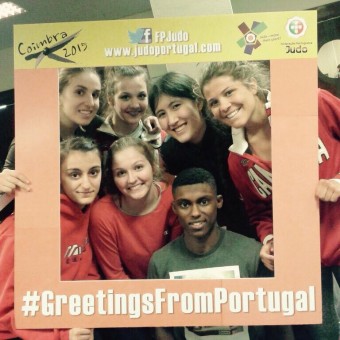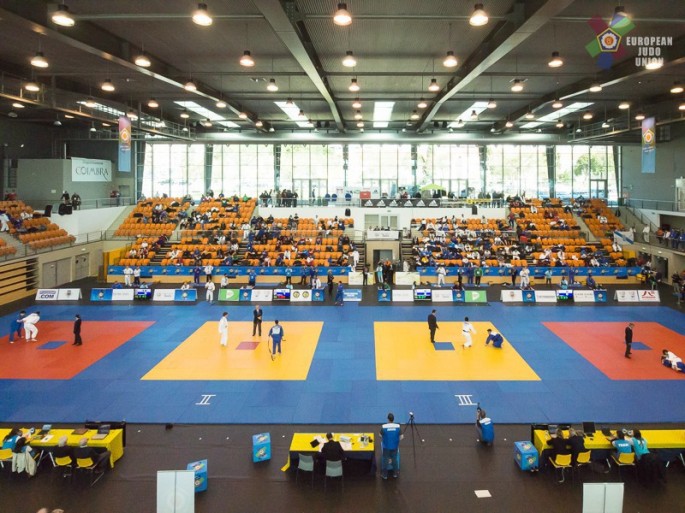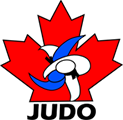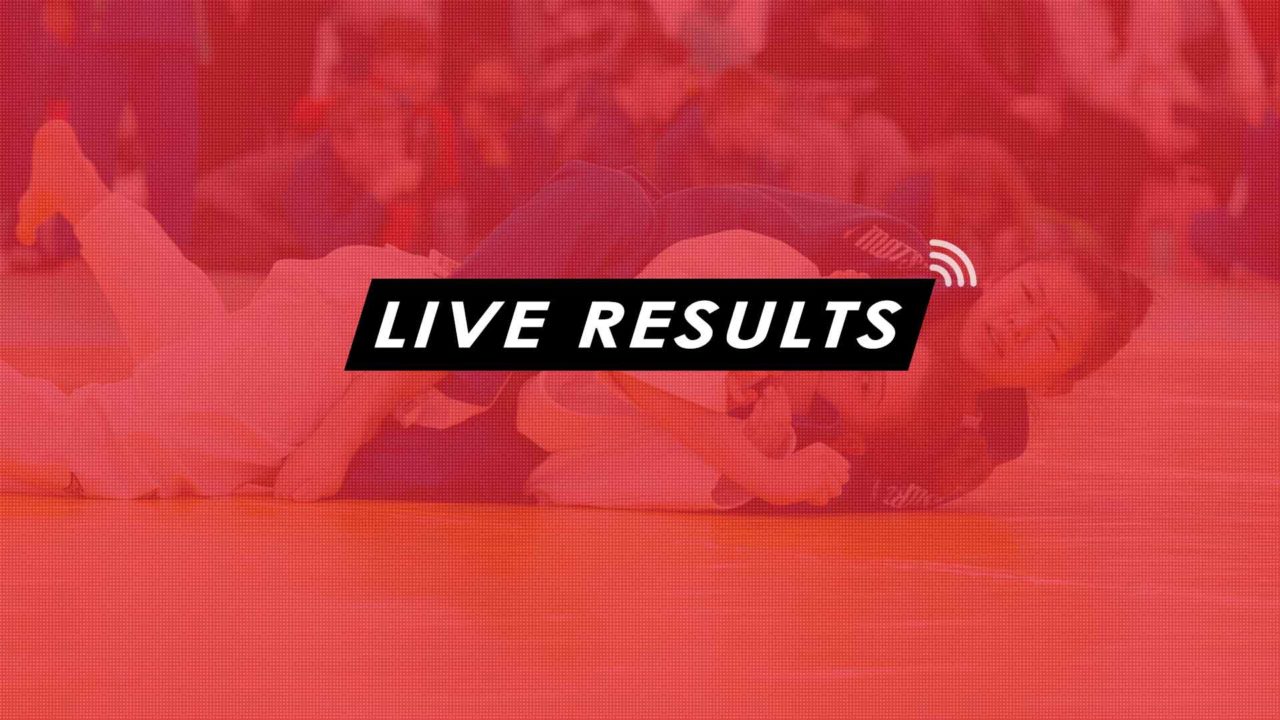This past March, Megan Hanks from the Aberdeen Judo Academy, and Dante St. Prix from Ishikawa Family Judo Club were both selected to attend the EJU Junior European Cup in Coimbra, Portugal March 14-18. Hanks then moved on to complete at the Thuringia International in Bad Blankenburg, Germany March 21-25 and St. Prix competed at the International Masters in Bremen, Germany March 19-25.

“This was an incredible experience and I would recommend this to any athlete who has the opportunity to go,” says Hanks. “In Portugal I made it to the semi-finals but faced some tough opponents from the Netherlands and ended up placing fifth. In Germany, I lost to a member of the French National Team in the second round who ended up winning bronze. Both training camps were well attended and educational and I learned a lot. I am excited to apply everything I learned from this trip to my training at my club and will continue to work towards improving my judo in the future.”
“Getting to experience this level of international competition and training has inspired me to train harder and shown me how much further I can still go with Judo. I think that others would benefit from and enjoy this type of experience as well.”
St. Prix was also very appreciative of the experience, “Going to Portugal and Germany for the Junior European Cup and the Bremen International Masters Tournament was a priceless experience where I got a better understanding of my ability and an understanding of European judo while experiencing a whole different culture: different languages, architecture, food and little things that one will never learn reading a book.”
“First in Portugal, I saw some of the people in my division at the tournament site. It was alarming that over half the people looked like they were 80+ kg, compared to my 71.6 kg weighing in (which was after eating delicious creamy pasta). I fought against a British fighter. I was up a yuko from a drop-seoi but got caught and thrown with sutemi waza, I believe it was a yoko sutemi, for ippon. Since he didn’t make it past the quarter finals (he lost to the gold medalist in the quarter finals), I was eliminated. The first day of the Portugal camp was fun as most of the other teams left and I got to throw around some locals fairly easily. The third day and everything after that was a grind. That’s because I started cutting 5 kg, which were supposed to vanish in 5 days (to fight -66 in Germany), which meant that I had to eliminate 80% of the carbs from my diet.”

“I arrived in Bremen, Germany on Friday, a zombie. At this point, I had difficulty keeping up a normal walking pace and was still at 67kg and diet alone did not remove it. On Saturday, when the U-18 team fought, I blew 12 euros ($16 Canadian) to enter a lavish pool and spa as it had the only sauna in a 2 km radius. The 15 minute walk there and back was not enjoyable but was well worth it as it allowed me to eliminate the last kilo a few hours before weighing in. I weighed in at 65.7kg and returned to a healthy 69kg by nightfall. The good thing about the Bremen tournament is that even though it is one of the most competitive junior tournaments, it isn’t an IJF one, meaning that they didn’t enforce the 5% rule, in which athletes are randomly selected to weigh in on the day of the tournament and get disqualified if they are 5% over the weight limit.”
“On the day of the tournament, I won 2 and lost 2 matches after fighting for 4 minutes every match, which is something that never happens when I fight in Canada. Europeans are at a whole different level when it comes to positioning themselves to not get thrown and spinning out of nearly perfectly executed throws. Both of my matches were lost due to shidos as the opponents didn’t allow me to get my desired grip, which frustrated me. From this, I learned that even without the desired grip, it is always necessary to continue using foot sweeps and staying active, which will cause the opponent to feel pressured while causing the referees to think that I’m being dominant and thus having no excuse to give me a shido.”
“The following training camp was also a very good learning experience. I started to get a sense of how Europeans fought. I found that there was a large diversity of fighting styles; some liked to overgrip, while some stuck to the traditional sleeve and lapel grip but I found that everyone is good at their fighting style and is consistent. Every practice was comprised of a 10 minute warm up (randori) followed by around 6 rounds of 4 minute randori. Almost every opponent fought me with a very high intensity, forcing me to fight even harder than when I fought several junior and senior tournaments in Canada. From this, I found that I need to train with a higher intensity to be able to simulate tournament conditions. After the camp, I made sure to pack my suitcase full of chocolate to bring home. The chocolate in and of itself makes travelling to Europe a worthy experience.”
Congratulations to both competitors and good luck with the next competition!

 SHOP
SHOP












